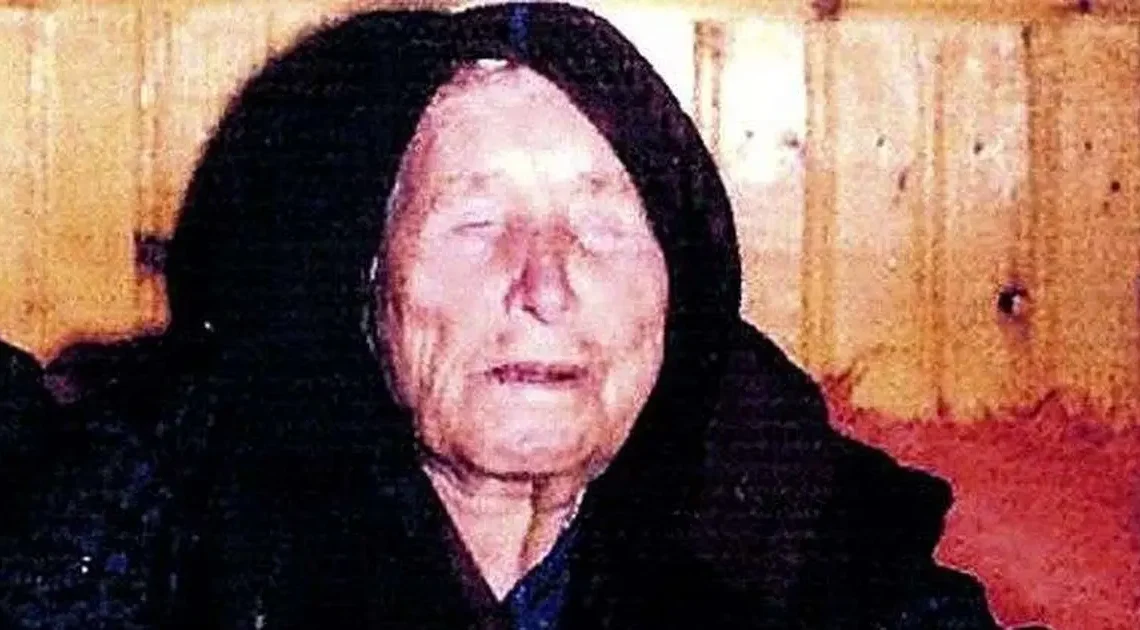
Meet Baba Vanga’s Parents: Pando Surchev and Paraskeva Surcheva
Vangeliya Pandeva Gushterova, better known as Baba Vanga, was a blind Bulgarian mystic and healer whose prophecies captured global attention.
She was born prematurely on October 3, 1911, in Strumica, then part of the Ottoman Empire (now in North Macedonia).
Trending Now!!:
Her early life was marked by hardship, including poverty and the loss of her mother at age three. With her father away serving in World War I, she was cared for by neighbors.
At 12, a severe storm reportedly lifted her into the air, filling her eyes with dust and sand, which eventually led to blindness despite medical treatment. This traumatic event shaped her life, as she began experiencing visions shortly afterward. Baba Vanga maintained a strong Bulgarian identity and Orthodox Christian faith throughout her life.
Her father, Pando Surchev, was a revolutionary and shepherd imprisoned for his pro-Bulgarian activism, while her mother, Paraskeva Surcheva, died during childbirth in 1914. Vanga had three younger siblings: Vasil Surchev, Tome Surchev, and Lyubka Surchev (also known as Lyubov). After her father remarried and her stepmother passed away, Vanga helped care for her siblings amid ongoing family struggles.
Her formal education was limited due to poverty and blindness. She attended a school for the blind in Zemun, now in Serbia, where she learned Braille, piano, knitting, cooking, and cleaning.
She married Dimitar Gushterov, a Bulgarian soldier, on May 10, 1942. They had no biological children but adopted a daughter, Veneta Gushterov (also called Violetta Gushterov), and a son, Dimitar Gushterov.
Dimitar passed away in 1962 due to health issues related to alcoholism. Reports suggest Vanga’s height was around 5 feet 5 inches (165 cm), though this is unverified. She focused her life on mysticism, family, and helping others rather than dating prior to marriage.
Baba Vanga passed away on August 11, 1996, at the age of 84. Her life, shaped by hardship and resilience in the turbulent Balkans of the early 20th century, gave rise to extraordinary foresight. Her prophecies—ranging from predictions of the 9/11 attacks to the rise of ISIS—continue to intrigue millions of followers worldwide, even as skeptics question their accuracy.
Paraskeva Surcheva
Paraskeva Surcheva, Baba Vanga‘s biological mother, was a devoted homemaker whose brief life was defined by quiet endurance and maternal love in the face of adversity.
Born in the late 19th century in the Strumica region, Paraskeva hailed from a humble Macedonian family, where daily existence revolved around agrarian toil and close-knit community ties.
Records suggest she embodied the resilience of rural women in the Ottoman Empire, managing household duties amid the encroaching shadows of World War I.
On October 3, 1911, Paraskeva gave birth to Vangeliya—Baba Vanga—in a premature delivery that nearly claimed both lives. The infant, frail and battling health complications, was not named for several days, adhering to local traditions that withheld names from those unlikely to survive.
Paraskeva‘s strength during this ordeal underscored her role as a pillar of stability in a chaotic era. However, tragedy struck early: Paraskeva died in 1914 while giving birth to her second child, when Vanga was just three years old.
This loss left an indelible scar on the young girl, thrusting her into a world without maternal guidance. As Baba Vanga‘s mother, Paraskeva‘s influence was profound yet fleeting. Vanga later recalled fragments of warmth from her early childhood—stories of a gentle woman who instilled values of kindness and faith.
Paraskeva‘s untimely death forced Vanga to rely on neighbors and relatives for care, fostering the independence that would later define her. In the mystic’s own words, preserved in biographies, she often spoke of feeling her mother’s “unseen presence” during visions, suggesting a spiritual bond that transcended her short life.
Pando Surchev
Pando Surchev, Baba Vanga‘s father, was a man forged in the fires of revolutionary fervor and unyielding patriotism, whose life of activism and sacrifice mirrored the volatile history of the Balkans.
Born on May 7, 1873, in the village of Novo Selo near Strumica, Pando grew up in a time of Ottoman oppression. By his early adulthood, he had become a committed member of the Internal Macedonian Revolutionary Organization (IMRO), specifically its pro-Bulgarian branch—a clandestine group fighting for Macedonian autonomy and Bulgarian cultural ties.
His involvement led to imprisonment in the notorious Yedi Kule fortress in Thessaloniki around 1908, a harrowing experience that only deepened his resolve. Pando married Paraskeva in Strumica, and their union produced several children, including Vangeliya.
As a father, he was both protector and provider, working variously as a policeman and shepherd to sustain his growing family. Yet, the outbreak of World War I in 1914 shattered this fragile peace. Conscripted into the Bulgarian Army, Pando left his young daughter behind just as Paraskeva passed away.
Vanga, orphaned in all but name, was cared for by extended family and villagers during these years of absence. Pando‘s return after the war brought temporary relief, but geopolitical shifts soon compounded their woes.
In 1919, Strumica was ceded to the Kingdom of Serbs, Croats, and Slovenes (later Yugoslavia), and Pando‘s pro-Bulgarian activism branded him a subversive. Arrested by Yugoslav authorities, he endured imprisonment, property confiscation, and years of destitution that plunged the family into abject poverty.
To shield his children—including Vanga and her siblings Vasil, Tom, and Lyubov—Pando remarried after Paraskeva‘s death, introducing a stepmother who helped raise the brood. In 1923, he relocated the family to Novo Selo, seeking a fresh start.
As Baba Vanga‘s father, Pando was a figure of stoic strength; Vanga credited him with teaching her the value of perseverance and a fierce sense of identity. He passed away on November 8, 1940, at age 67, leaving behind a daughter whose clairvoyant gifts would soon eclipse the hardships he had weathered.
Pando‘s life, marked by rebellion and redemption, instilled in Vanga the unshakeable fortitude that allowed her to navigate blindness, poverty, and fame.
NOTICE!! NOTICE!! NOTICE!!
At TheCityCeleb, we strive to provide accurate and up-to-date biographies and entertainment news, focusing on celebrities. Our editorial team researches information from reputable sources, including interviews, official statements, and verified media.If you spot an error or have additional details, please contact us at editor@thecityceleb.com. We value your feedback and are committed to maintaining trustworthy content.


